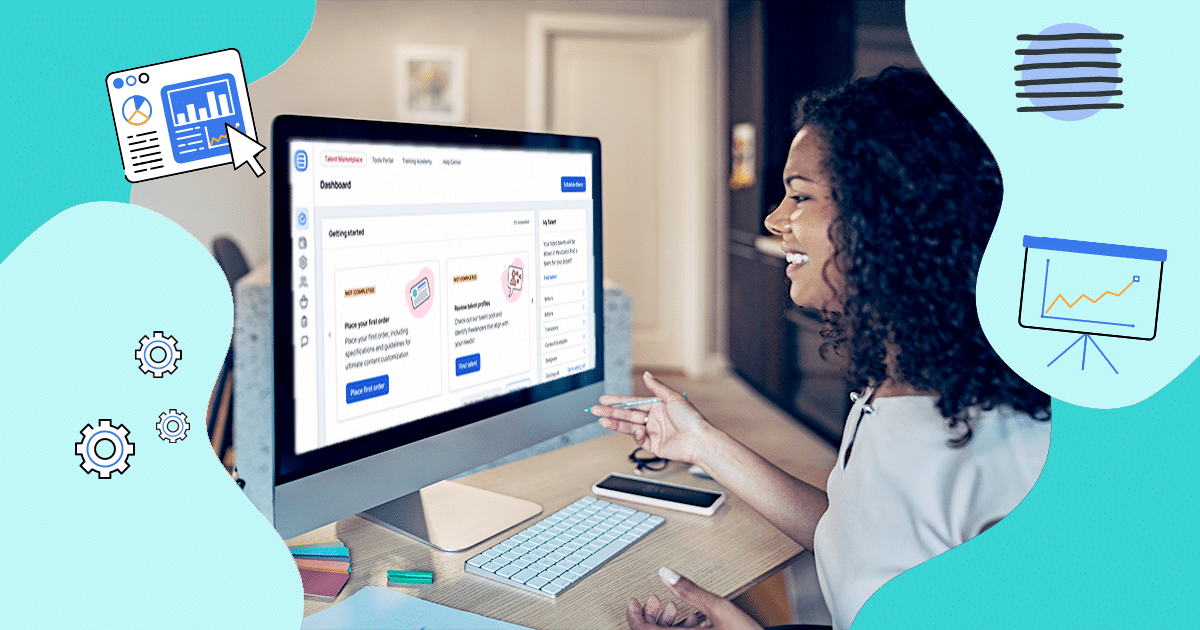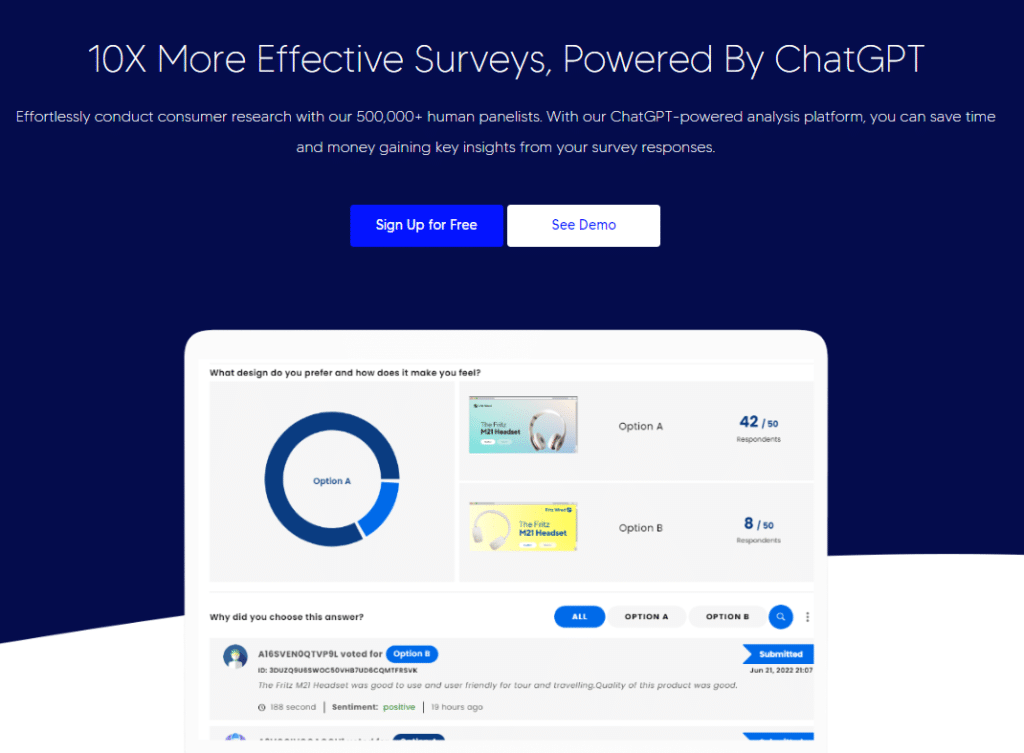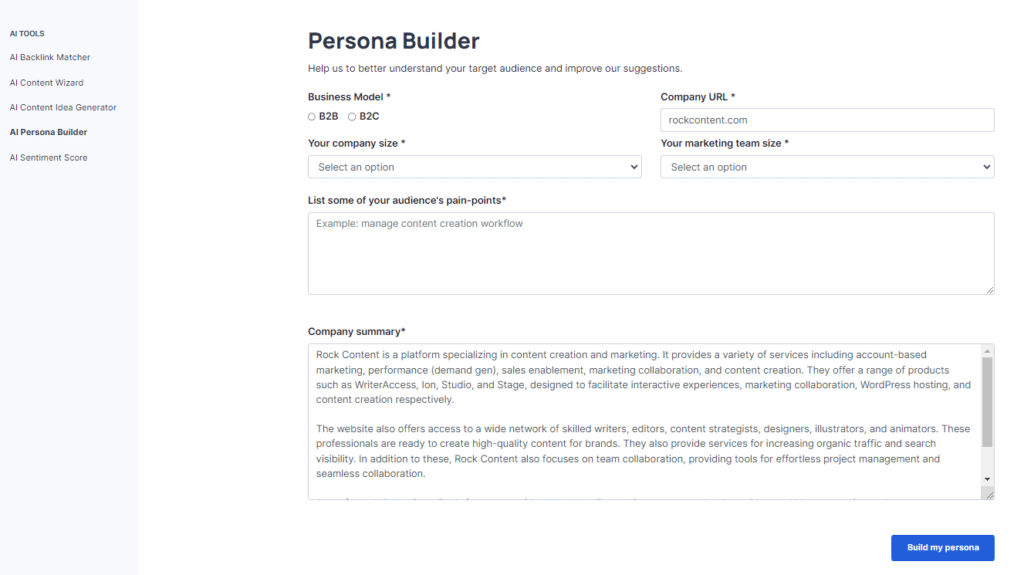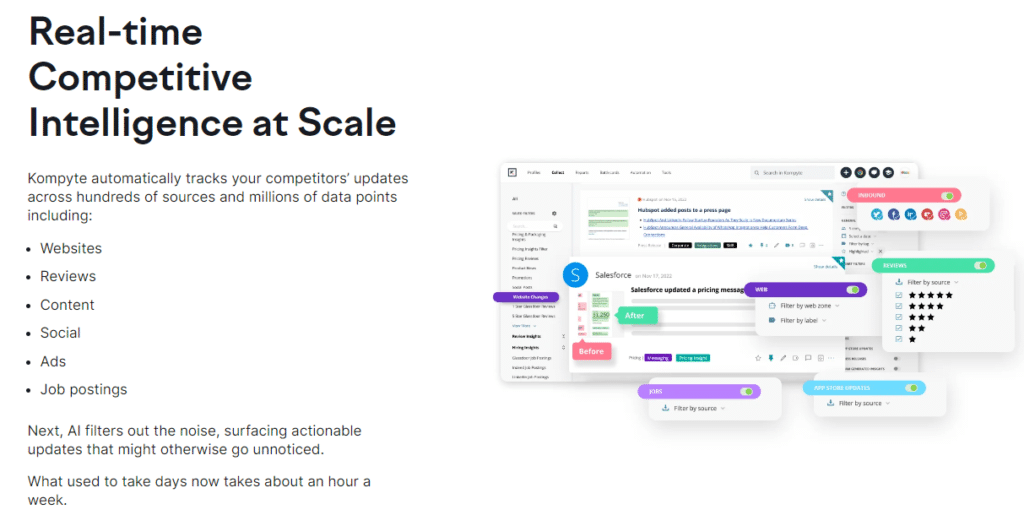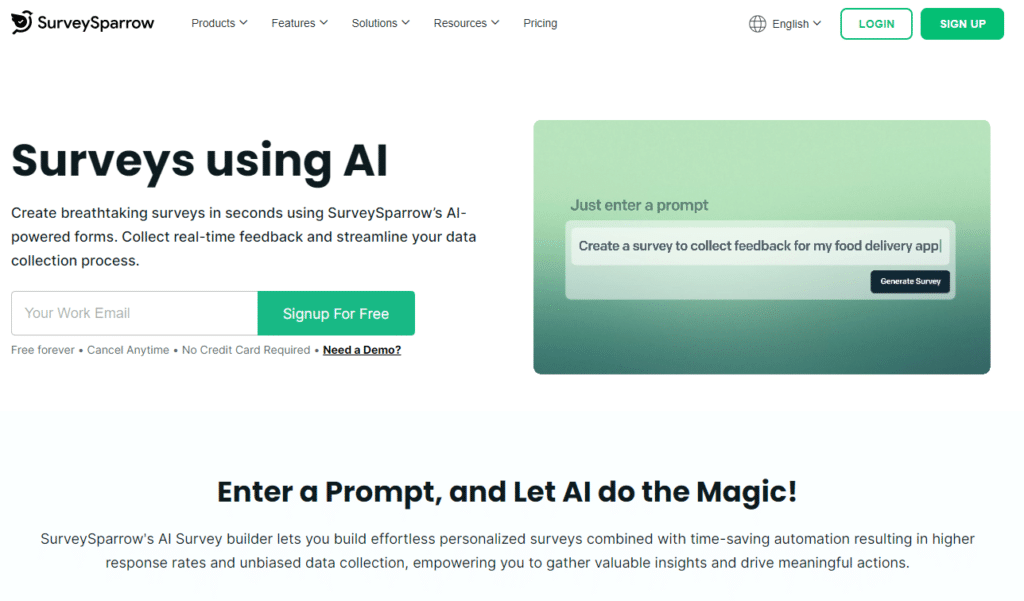No products in the cart.
Content Marketing
AI Market Research: Tools, Methods, and Trends
Market research plays a pivotal role in marketing. The initial step to effectively promote your products, services, and brand benefits is gaining a comprehensive understanding of your target audience, competitors, and industry landscape.
Market research helps you find the right customer for your brand in the first place. It also helps you determine what they’re looking for, accurately plan your campaigns, and keep up with your competitors.
In 2023, AI has emerged as a must-know research tool for digital-age marketers. Here’s a closer look at what AI market research is all about and how you can make the most of it.
What is Marketing Research?
Marketing research is the process of gathering, analyzing, and interpreting data and information related to the market, consumers, competitors, and the overall business environment.
Its primary goal is to provide valuable insights and knowledge that can inform and guide marketing strategies, decision-making, and actions.
Marketing research helps businesses understand consumer behavior, preferences, and needs, as well as assess market trends and competitive dynamics.
This information is crucial for making informed marketing decisions, developing effective marketing campaigns, launching new products or services, and ultimately achieving business objectives.
The Evolution of Market Research
Just as the needs, tastes, and pain points of consumers have evolved over the years, so has the world of marketing. The industry’s go-to approach to marketing research has evolved quite a bit as a result.
Traditional market research methods
Traditional marketing approaches like surveys, focus groups, one-to-one interviews, and intercept encounters are fantastic ways for researchers to glean valuable information straight from the source. However, they can also be expensive and time-consuming.
Plus, collected data can quickly drift out of date, especially in today’s fast-paced digital world.
The emergence of AI in marketing research
Adding AI technology to the mix brings value and usefulness to the table. AI saves marketing teams a fortune in time, money, and labor by automating many aspects of the data collection process and effortlessly managing vast amounts of data.
Advancements in natural language processing and top-tier machine learning also enable AI market research tools to achieve near-human levels of behavior and intent analysis.
Enhanced predictive capabilities are another remarkable facet of AI-powered market research. By continuously analyzing vast datasets, AI systems can identify emerging trends and predict market shifts with a high degree of accuracy.
This predictive capability enables businesses to proactively adapt their marketing strategies, stay ahead of competitors, and capitalize on new opportunities as they arise.
AI’s ability to uncover hidden patterns and correlations within data also assists in fine-tuning product development, targeting the right audience segments, and optimizing marketing campaigns for maximum effectiveness.
As AI continues to evolve, its predictive prowess will play an increasingly pivotal role in shaping the future of marketing research.
5 AI Market Research Tools to Help Streamline Your Process
Ready to dig into how AI can make your brand’s market research workflow easier and more efficient? Here’s an overview of how that works.
Integrating AI into market research workflow
Modern marketers really have their options open as far as how they can leverage AI into their existing workflow. Today’s AI market research tools can quickly zero in on important trends and patterns, as well as automate many aspects of the data collection process.
They can also give you valuable suggestions on how to apply your findings, personalize your customer experience, and take your brand to the next level. Here are some key tools to consider.
This incredible multipurpose research tool lets brands collect and leverage data to facilitate market analysis, conduct competitor assessments, and gain valuable insights into niche markets or target demographics.
Researchers can conduct dynamic, multi-faceted market share analysis in a flash, as well as fully customize their approaches.
Marketers looking for an out-of-the-box way to put together and implement market surveys may want to take a closer look at Poll the People. Powered by OpenAI’s ChatGPT, this tool lets users poll a respondent pool of over half a million people.
Marketers can use this tool to test ad efficiency, get feedback on brand assets like logos, preview how audiences will receive branded content, and more.
Rock Content’s AI Persona Builder is a promising new tool available as a feature within WriterAccess, the company’s elite content production platform.
It takes the guesswork out of putting together unique, highly accurate personas customized with your brand’s needs in mind. Persona results are based on genuine, carefully gathered data for accuracy and efficiency.
4. Kompyte
Kompyte is also a tool by Semrush that streamlines the process of understanding brand competitors and coming up with winning strategies to stay ahead of the game.
Specific features include detailed win-loss reports, strategies designed to help sales reps overcome objections, and access to a robust knowledge base.
Survey Sparrow is a cloud-based tool designed to facilitate the process of creating and administering market research surveys.
Features include AI-powered assistance with creating compelling questions, real-time analysis of feedback received, and additional tools to assess employee experience.
Top brands like Facebook, Coca-Cola, Starbucks, and many more are already leveraging AI technology to make market research faster, more affordable, and more efficient. And accessible, affordable tools like the above can do the same for your brand.
Leveraging AI for data analysis
AI technology doesn’t seek to replace human analysts or marketing experts; instead, it complements their skills and equips them with powerful tools to excel in their roles.
This is particularly valuable in the realm of complex B2B market research, where the combination of human expertise and AI-driven insights can yield remarkable results.
AI achieves this by swiftly sifting through vast databases, extracting relevant information, and identifying intricate patterns that might elude human researchers due to the sheer volume of data.
This ability to process and analyze data at lightning speed is a game-changer for marketing teams aiming to gain a competitive edge in the B2B landscape.
The synergy between AI and human intelligence is the key to unlocking the full potential of AI-driven market research. By leveraging AI as a supportive tool, human research teams can amplify their productivity, make more informed decisions, and focus on strategic tasks that require critical thinking and creativity.
This collaborative approach not only optimizes the research process, but also empowers businesses to stay agile, adapt to evolving market dynamics, and drive sustainable growth in the competitive B2B arena.
Will Market Research Analysts Be Replaced by AI?
As useful as AI is, it’s unable to implement the lived experiences, empathetic capabilities, and genuine creativity a human research analyst brings to the table. So, no, AI won’t (and can’t) replace human analysts, although it does give them tools they can leverage to be better at what they do.
Trends and Future of AI Market Research
So, what’s most exciting about AI right now, and where is it going in the future? Let’s take a look.
Current trends in AI market research
In 2023, some of the most important emerging AI market research trends include innovations related to price optimization, survey technology, consumer inclusivity, and social media listening.
AI is also making huge strides in the customer experience sector via emotion AI tech. Brands everywhere are using what they learn from technologies like these to improve products, better train reps, and more.
The future landscape of AI market research
As far as where AI is going next, watch for advancements in fields like natural language generation and intelligent data collection.
Predictive analytics will also be huge, as will the growing focus on developing and using AI ethically, especially when it comes to data collection and use.
Conclusion
With efficient AI technology (like the options discussed here) as part of the mix, it’s never been easier to conduct better market research or make talented human research teams more efficient.
Take the next step into your brand’s bold new marketing future when you sign up for your free 14-day WriterAccess trial today! You’ll love the magic that happens when AI-powered tech and human creativity seamlessly come together.

